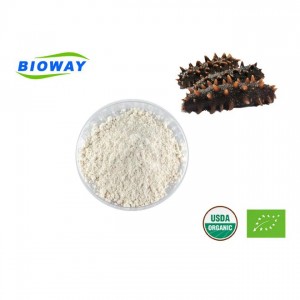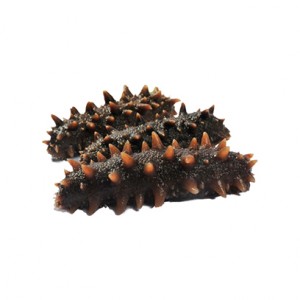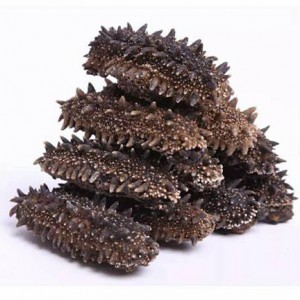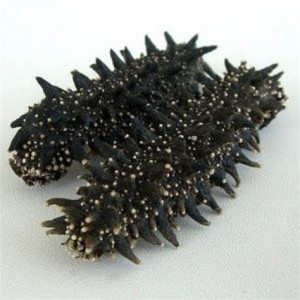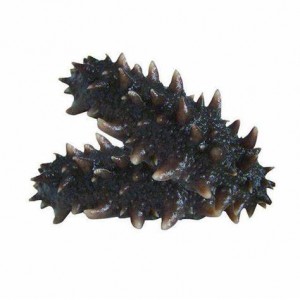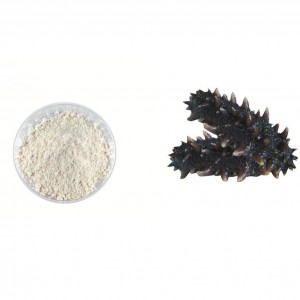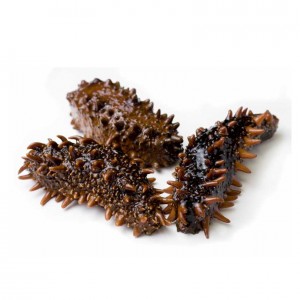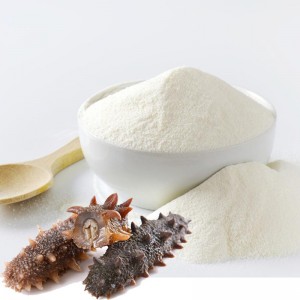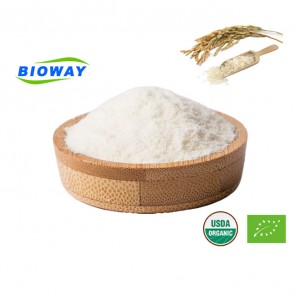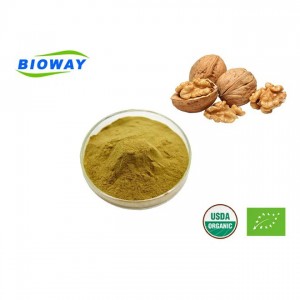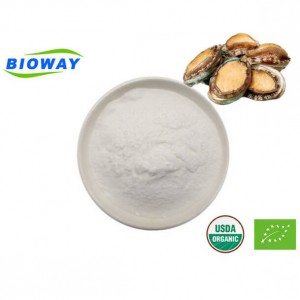Sea Cucumber Peptide
Sea cucumber peptide is natural bioactive compounds extracted from sea cucumbers, a type of marine animal that belongs to the echinoderm family. Peptides are short chains of amino acids that serve as building blocks for proteins. Sea cucumber peptide has been found to possess various health benefits, including antioxidant and anti-inflammatory properties, as well as potential anti-cancer, anti-coagulant, and immunomodulatory effects. These peptides are believed to play a crucial role in the sea cucumber's ability to regenerate its damaged tissues and protect itself from environmental stressors.
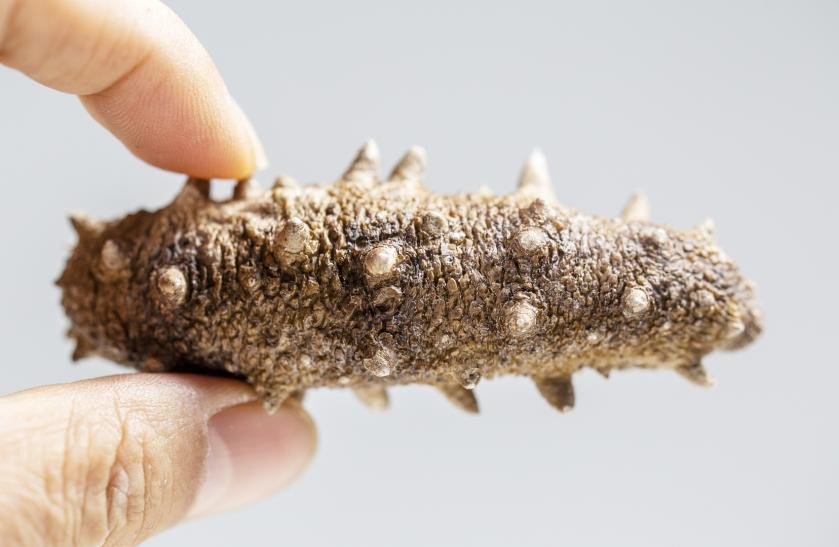
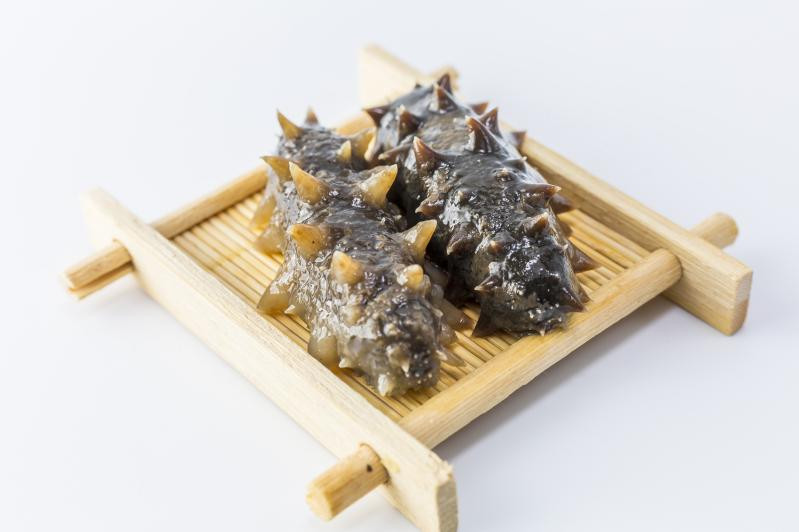
| Product Name | Sea Cucumber Peptide | Source | Finished Goods Inventory |
| Item | Quality Standard | Test Result | |
| Color | Yellow , Brown yellow or light yellow | Brown yellow | |
| Odor | Characteristic | Characteristic | |
| Form | Powder ,Without aggregation | Powder ,Without aggregation | |
| Impurity | No impurities visible with normal vision | No impurities visible with normal vision | |
| Total protein(dry basis %)(g/100g) | ≥ 80.0 | 84.1 | |
| Peptide content(d ry basis %)(g/100g) | ≥ 75.0 | 77.0 | |
| Proportion of protein hydrolysis with relative molecular mass less than 1000u /% | ≥ 80.0 | 84.1 | |
| Moisture (g/100g) | ≤ 7.0 | 5.64 | |
| Ash (g/100g) | ≤ 8.0 | 7.8 | |
| Total Plate Count (cfu/g) | ≤ 10000 | 270 | |
| E. Coli (mpn/100g) | ≤ 30 | Negative | |
| Molds( cfu/ g ) | ≤ 25 | < 10 | |
| Yeast ( cfu/ g ) | ≤ 25 | < 10 | |
| Lead mg/kg | ≤ 0.5 | Not be detected (< 0.02) | |
| Inorganic arsenic mg/kg | ≤ 0.5 | < 0.3 | |
| MeHg mg/kg | ≤ 0.5 | < 0.5 | |
| Pathogens (Shigella, Salmonella, Staphylococcus aureus) | ≤ 0/25g | Not be detected | |
| Package |
Specification: 10kg/bag ,or 20kg/bag Inner packing: Food grade PE bag Outer packing: Paper-plastic bag |
||
| Shelf life | 2 years | ||
| Intended Applicatons |
Nutrition supplement Sport and health food Meat and fish products Nutrition bars, snacks Meal replacement beverages Non-dairy ice cream Baby foods, Pet foods Bakery, Pasta, Noodle |
||
| Prepared by: Ms. Ma o | Approved by: Mr. Cheng | ||
1.High-quality source: Sea cucumber peptides are derived from the sea cucumber, a marine animal that is highly esteemed for its nutritional and medicinal value.
2.Pure and concentrated: Peptide products are typically pure and highly concentrated, containing a high percentage of active ingredients.
3.Easy to use: Sea cucumber peptide products come in various forms, including capsules, powders, and liquids, making them easy to use and incorporate into your daily routine.
4.Safe and natural: Sea cucumber peptides are generally considered to be safe and natural, with no known side effects.
5.Sustainably sourced: Many sea cucumber peptide products are sustainably sourced, ensuring that they are harvested in an environmentally responsible manner that supports the long-term health of the ecosystem.
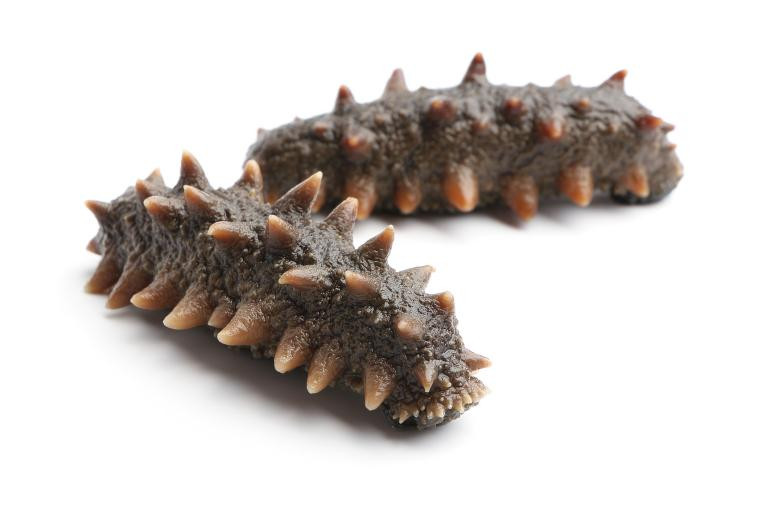
• Sea Cucumber Peptide applied to food fields.
• Sea Cucumber Peptide applied to health care products.
• Sea Cucumber Peptide applied to cosmetic fields.

Please refer to below our product flow chart.

Storage: Keep in a cool, dry, and clean place, Protect from moisture and direct light.
Bulk Package: 25kg/drum.
Lead Time: 7 days after your order.
Shelf Life: 2 years.
Remark: Customized specifications also can be achieved.
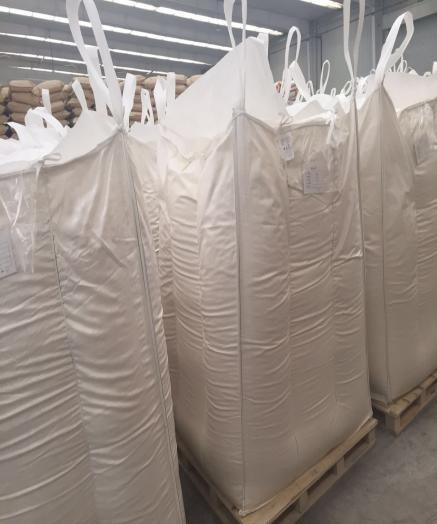
20kg/bags
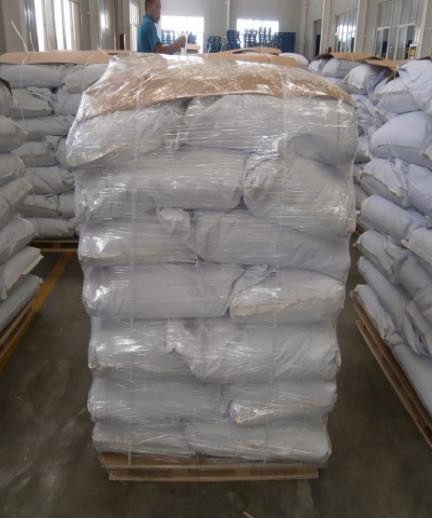
Reinforced packaging
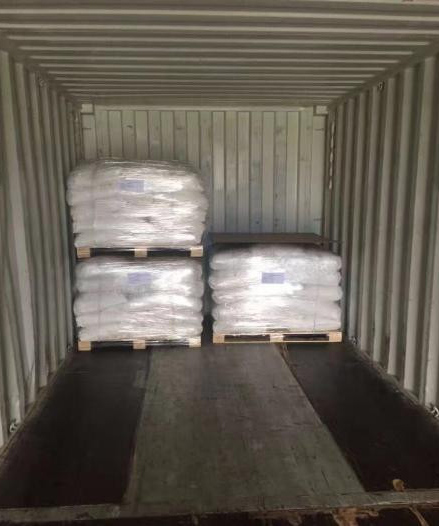
Logistics security
Express
Under 100kg, 3-5Days
Door to door service easy to pick up the goods
By Sea
Over300kg, Around 30 Days
Port to port service professional clearance broker needed
By Air
100kg-1000kg, 5-7Days
Airport to airport service professional clearance broker needed

Sea Cucumber Peptide is certified by ISO, HALAL, KOSHER and HACCP certificates.

There are over 1,000 species of sea cucumbers, and not all of them are edible or suitable for medicinal or nutritional purposes. In general, the best type of sea cucumber for consumption or use in supplements is one that is sustainably sourced and has undergone proper processing to ensure the highest quality and safety. Some of the most commonly used species for nutritional and medicinal purposes include the Holothuria scabra, Apostichopus japonicus, and Stichopus horrens. However, the specific type of sea cucumber considered "best" may depend on the intended use and the individual's preferences and needs. It is also important to note that some sea cucumbers may be contaminated with heavy metals or other pollutants, so it is essential to purchase products from reputable sources that test for purity and safety.
Sea cucumbers are low in fat and do not contain any cholesterol. They are also a good source of protein, vitamins, and minerals. However, the nutritional composition of sea cucumbers can vary depending on the species and how they are prepared. It is always recommended to check the nutrition label or consult a nutritionist for specific information on the nutritional content of the sea cucumber product you are consuming.
In traditional Chinese medicine, sea cucumbers are believed to have a cooling effect on the body. They are thought to nourish yin energy and have a moistening effect on the body. However, it is important to note that the concept of "heating" and "cooling" foods is based on traditional Chinese medicine and may not necessarily correspond with Western concepts of nutrition. In general, the effect of sea cucumbers on the body is likely to be moderate and may vary depending on factors such as the form of preparation and the individual's health status.
Sea cucumbers do contain some collagen, but their collagen content is lower compared to other sources like fish, chicken, and beef. Collagen is an important protein that provides structure to skin, bones, and connective tissues. While sea cucumbers may not be the richest source of collagen, they do contain other beneficial compounds like chondroitin sulfate, which is believed to support joint health. Overall, while sea cucumbers may not be the best source of collagen, they can still provide other health benefits and make a nutritious addition to meals.
Sea cucumber is a good source of protein. In fact, it is considered a delicacy in many cultures because of its high protein content. On average, sea cucumber contains between 13-16 grams of protein per 3.5 ounce (100 gram) of serving. It is also low in fat and calories making it a healthy choice for those who want to maintain a healthy diet. Additionally, sea cucumber is a good source of minerals, such as calcium, magnesium, and zinc, and vitamins such as A, E, and B12.






